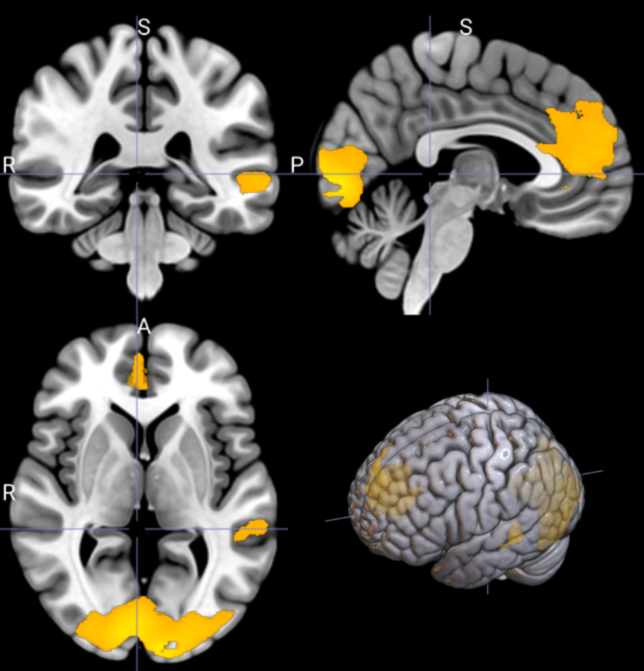MEMBERS
Camille Piguet Nemitz


After achieving medical studies, Camille Piguet-Nemitz completed a PhD in neurosciences on mood disorders. She is currently leading a research lab as Privat Docent at the Department of Psychiatry of the Faculty of Medicine, while keeping clinical work in paediatrics and psychiatry at Geneva University Hospitals (HUG).
For her research, Camille Piguet Nemitz is particularly interested in using functional neuroimaging and cognitive neuroscience approaches to study cerebral networks of stress response as a marker of vulnerability to emotional regulation disorders. Based on this approach, her ultimate goal is to develop early interventions in young people, helping them to keep a healthy brain and prevent the development appearance of emotional dysregulation.
Emotional Regulation in Teens to Improve Prevention and Treatment
Improving emotional regulation in adolescents is crucial to preventing and treating emotional disorders and suicidal behaviours. Camille Nemitz-Piguet’s research group has developed an 8-week intervention for adolescents aged 16 to 20 with emotional dysregulation, together with Nader Perroud (HUG, UNIGE) and Anne Edan (HUG). The intervention consists of weekly group sessions where participants learn to regulate their emotions using psychoeducation, mindfulness and cognitive-behavioural principles. The effects of the intervention are measured through the assessment of self- and hetero-reported levels of emotional dysregulation, suicidal and self-damaging thoughts and behaviours, spontaneous use of new emotion regulation strategies, and responsiveness to negative peer feedback and use of social support in response during a virtual reality task. The group also collaborate on developing a stress reactivity task in virtual reality for adolescents.

Mindfulness to Reduce Stress and Increase Prosocial Skills in Students
Camille Piguet-Nemitz’s team is conducting the e-SMILE clinical trial to evaluate the effectiveness of the MBCT-L (Mindfulness-Based Cognitive Therapy for Life) mindfulness-based intervention in healthcare students, a population exposed to stress and therefore vulnerable to psychological distress. The trial includes three work packages (WP) to evaluate short and medium-term effects on stress and social skills, underlying neural circuits and induced metabolic changes, in collaboration with Serge Rudaz (pharmaceutical sciences, UNIGE) and Françoise Jermann (Service des Spécialités Psychiatriques, HUG).
More precisely, the first WP aims to evaluate the effect of the MBCT-L protocol on stress and pro-social skills. The second WP aims to understand the effects of the intervention on neural circuits of reactivity and recovery to psychosocial stress and social-emotional stress using functional magnetic resonance imaging (fMRI). Finally, the third WP focuses on identifying metabolic changes before and after the mindfulness intervention as well as stress biomarkers such as cortisol and inflammatory response molecules.

Emotional dysregulation as a marker of transdiagnostic vulnerability
Emotional dysregulation (ED) is a common symptom in several psychiatric disorders, including bipolar disorder, ADHD and borderline personality disorder. A transdiagnostic approach represents a promising prospect for identifying markers of vulnerability in at-risk individuals. Camille Piguet-Nemitz’s project is investigating the links between stress, indirect markers of neurogenesis and inflammation, ED symptoms and hippocampal connectivity abnormalities. By examining these variables in patients, at-risk offspring and healthy subjects, her research group intends to uncover common and specific mechanisms of these disorders, as well as multimodal and cross-diagnostic markers of vulnerability to ED in at-risk offspring.

Mindfulteen: improving mental health in adolescents through mindfulness
Camille Piguet-Nemitz’s lab seeks to help young people better manage their stress, which can lead to anxiety disorders and depression. Studies suggest that mindfulness meditation can help teens decrease their stress and anxiety levels, as well as increase their attention and decrease their emotional reactivity, but only a few studies exist in this population. Camille Piguet-Nemitz and her collaborators Arnaud Merglen (HUG) and Paul Klauser (University of Lausanne) have set up a study supported by the Leenaards Foundation and Synapsy to investigate the potential benefits and underlying mechanisms of a mindfulness-based intervention in 13 to 15-year-olds. Outcomes are compared before and after mindfulness practice using clinical assessments, biological markers and brain imaging.


Camille Piguet Nemitz's Team
